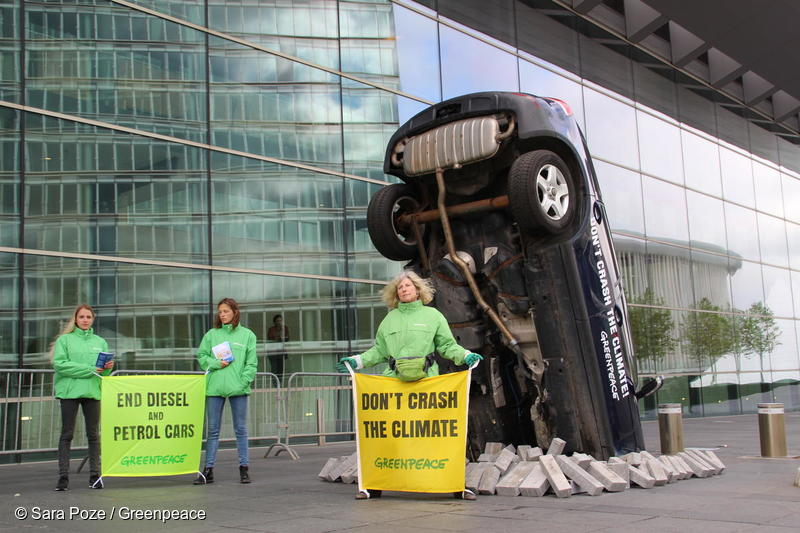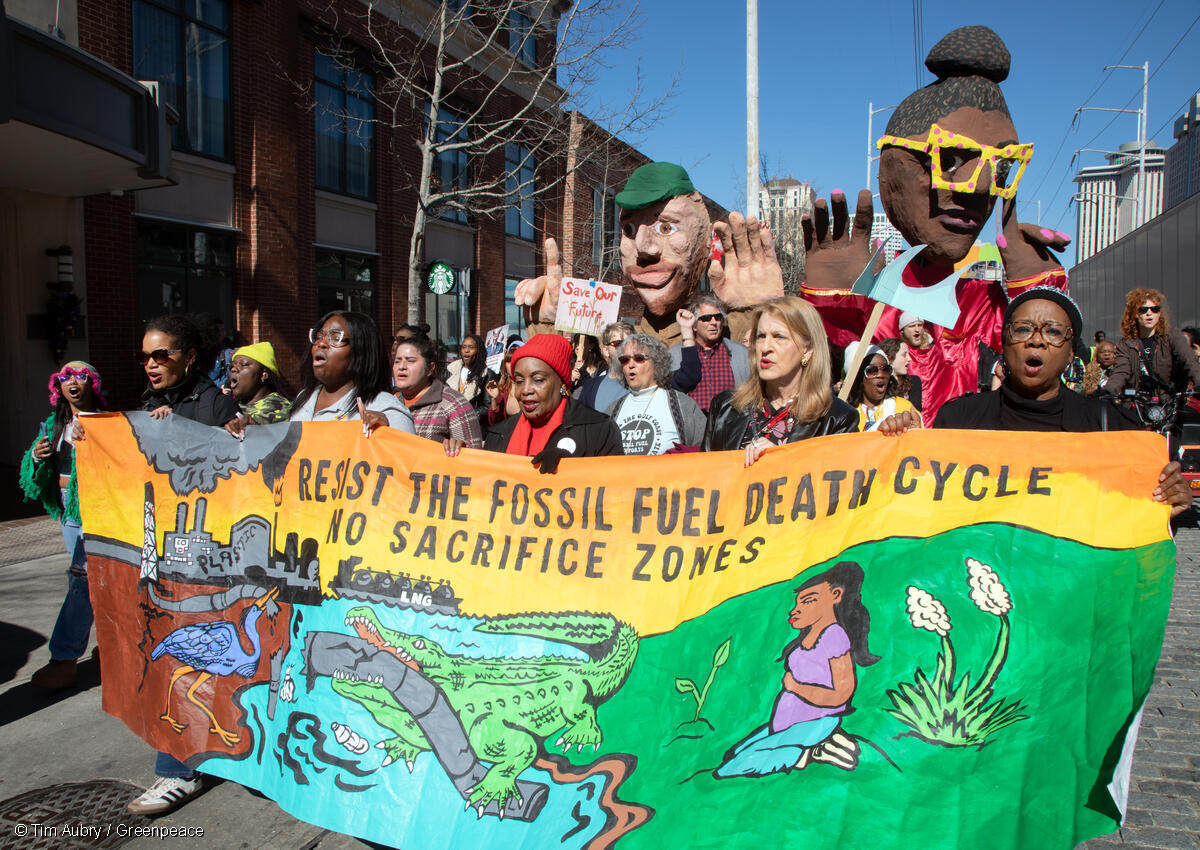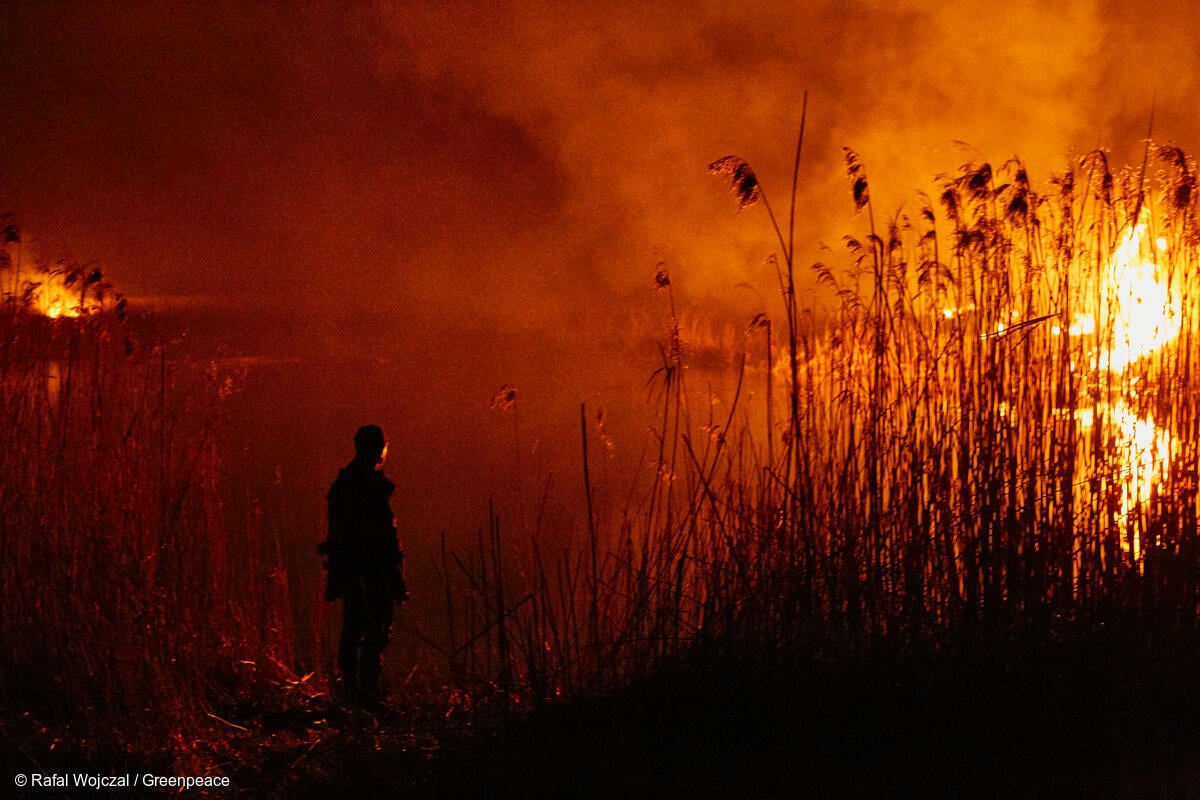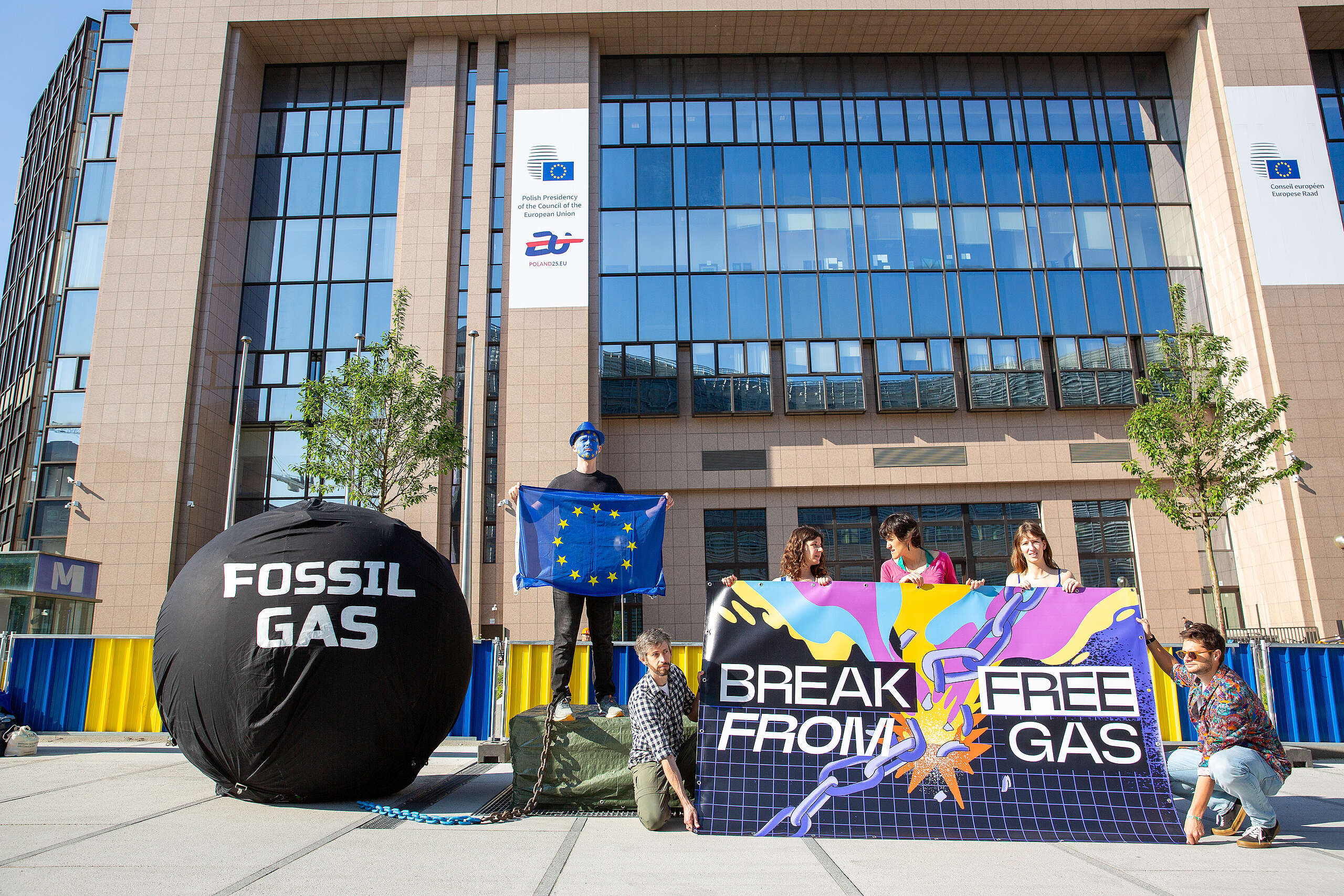 ***
***
Photos and videos for press use can be found here
Luxembourg — Activists from Germany, Poland, Belgium and Greenpeace Luxembourg are peacefully demonstrating outside a meeting of EU transport ministers in Luxembourg with a crashed car and large banner reading: “Don’t crash the climate!”. The activists are challenging ministers to tackle the growing impact of the EU transport sector in driving the climate crisis.
The activists called for commitments to phase out new diesel and petrol cars, as an important step in decarbonising transport. Despite the fact that 27% of greenhouse gas emissions in Europe come from the transport sector — with 45% of that from cars alone — ministers are expected to largely ignore this concern in today’s meeting [1].
“We are in the throes of a climate emergency. The transport sector keeps increasing its emissions and is one of the largest contributors to this crisis. National governments and EU decision-makers must take urgent action to roll out a sustainable transport revolution, starting with commitments to phase out petrol and diesel cars as soon as possible,” said Barbara Stoll, Greenpeace International project lead for the Clean Air Now campaign.
“Scientists have warned governments that we have a very small window left to reverse course and address the climate crisis we are facing. As this is the only meeting of transport ministers ahead of a summit in June expected to discuss the EU’s long-term climate plan, decarbonising the transport sector cannot be treated as simply another agenda item — it must be a true accounting of the role transport plays in this climate emergency. We see this as an opportunity for European Ministers to discuss how the sector can and must be included in the EU’s long-term climate plan — because we simply cannot tackle climate change without tackling transport.”
To fulfil Europe’s commitment to the Paris climate agreement and limit global warming to 1.5°C, Greenpeace is calling on the EU to cut greenhouse gas emissions by at least 65% by 2030, and achieve a net zero greenhouse gas emissions by 2040. [2] Additionally, it is critical that we rebuild our approach to urban mobility by investing heavily in public transport that is powered by renewable energy, cycling, and walking infrastructures, and by shifting from road to rail transport.
This peaceful action comes after the release of Greenpeace’s Phase-Out Date Map — a global map of commitments made by cities and national governments to phase-out the internal combustion engine (ICE) and get diesel and petrol cars off the road.
Most governments have lacked the urgency the environmental crisis calls for — either by setting ICE phase-out dates too late or not at all; or through weak implementation of car restriction measures and transport policies that lack consistency with the climate challenge. As research by the German Aerospace Institute underlines, for the EU to honour its commitments to limit global warming to 1.5°C, it must end the sale of petrol, diesel and conventional hybrid cars by 2028. [3]
ENDS
Media briefing can be found here
Photos and videos for press use can be found here
Follow the activists’ messages on Twitter here
Notes:
[1] https://www.eea.europa.eu/data-and-maps/indicators/transport-emissions-of-greenhouse-gases/transport-emissions-of-greenhouse-gases-11
[3] http://www.greenpeace.org/archive-belgium/Global/belgium/report/2018/20180907_GP_EUCarFleet_1.5.pdf
Contacts:
Lauren Reid — Greenpeace Clean Air Now international communications lead, Greenpeace Belgium: +44 7367 074602, [email protected]
Barbara Stoll — Greenpeace Clean Air Now project lead, Greenpeace Belgium: +44 7985 637173, [email protected]
For breaking news and comment on EU affairs: www.twitter.com/GreenpeaceEU
Greenpeace is an independent global campaigning organisation that acts to change attitudes and behaviour, to protect and conserve the environment and to promote peace. Greenpeace does not accept donations from governments, the EU, businesses or political parties.



